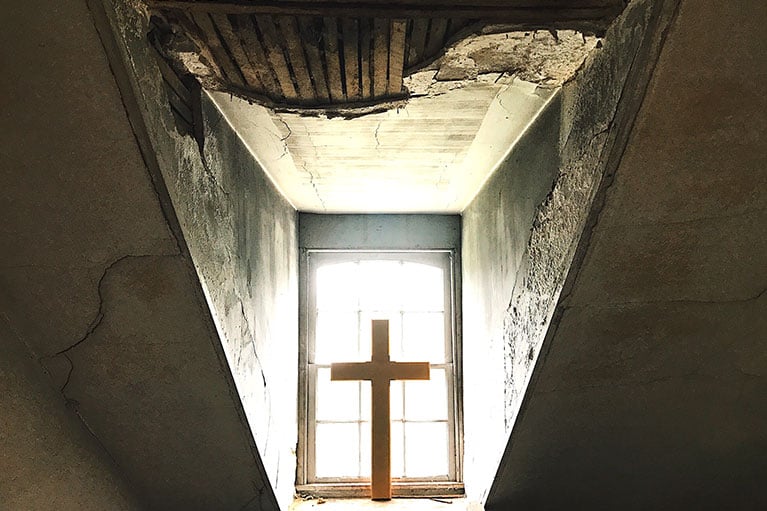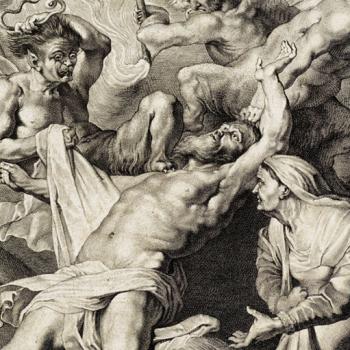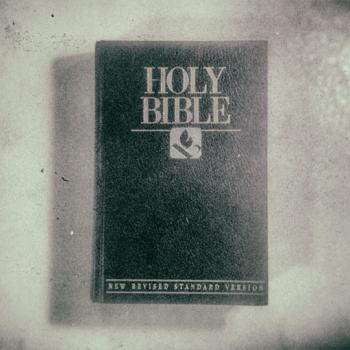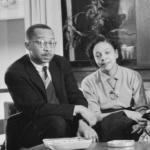This guest post was written by William Stell.

Until last year, creeds played no role in my personal religious life. I grew up Baptist, then moseyed over into non-denominational evangelicalism as a teenager, then ran for cover under the United Church of Christ as a young adult. For the past year, I have been serving as the pastor of a Presbyterian church, and in keeping with its Reformed tradition, this church recites a creed (usually the Apostles’ Creed) every Sunday. True confession: I didn’t know that this was a thing for Presbyterians until after I signed the papers and became this church’s pastor.
When I learned that I was expected to lead the Apostles’ Creed on a weekly basis, part of me wanted to push back. Turns out, I’m still a bit of a Southern Baptist, muttering under my breath, “We don’t need them creeds — the Bible’s good enough, dammit!” Even more so, though, I am a progressive Christian, mindful of the baggage that creeds carry and the pitfalls that they can open up.
Here are just three illustrations of what I mean by baggage and pitfalls:
- Throughout history, the powers that be have used creeds as tyrannical tests of faith, whereby sincere people of God have been sanctimoniously labeled “heretics,” denied fellowship, and even murdered.
- Creeds can easily become idols made of words. People assume that their creed of preference perfectly conveys divine truth, assume that finite language is somehow equivalent to infinite mystery, assume that God can be conveniently contained in their doctrinal boxes. But God won’t stay put in collections of words anymore than God will stay put in carvings of wood or stone.
- Creeds can unintentionally communicate to religious seekers that if they are uncomfortable saying any phrases or words within any given creed, then they are not fully welcome in that place of worship.
As a pastor, I’ve seen first-hand evidence of this last one. A man who has regularly attended our church for almost a year now told me that the words “born of the virgin Mary” in the Apostles’ Creed deterred him from officially joining our church. Enthusiastic as he is about faith and about our community, when he sees all of the other worshippers saying those five words without ambivalence (or so it seems), he can’t commit in good conscience to becoming one of them.
While commending him for his authenticity, I tried telling him that belief in a literal virgin birth is not a requirement for membership in our congregation or our denomination. Presbyterian pastors fought this fight and won it a hundred years ago, I said. Even so, he just isn’t comfortable becoming a member. The idol has cast too long of a shadow.
Knowing that there are so many others like this man, and knowing that my congregation isn’t going to give up its practice of creedal recitation anytime soon, I have sought to make friends with creeds — someway, somehow. And actually, I think that I have managed to do so.
In the United Church of Christ, all creeds and confessions are described as testimonies of faith, rather than tests of faith. Whereas a creedal test aims to ensure that everyone believes “the right answer” and pressures congregants into theological conformity, creedal testimonies aim to describe and commemorate what belief in God has looked like in times past (and, for those of us who are so inclined, what belief in God can look like today). Creedal testimonies invite congregants to look back, to honor those who have gone before them, and to see themselves as inheritors of the spiritual quests that gave birth to these ancient words of faith.
So, most weeks, when I stand in the pulpit and introduce the Apostles’ Creed, I preface it with something like this: “These words have come to us from our kindred in Christ of ages past. When we recite them, we re-connect with previous generations of our faith; we remind ourselves that in forming our beliefs, we have not been left to our own devices; and we rejoice in the assurance that we do not walk this journey of faith alone. In that spirit, I invite you to join me in reciting the Apostles’ Creed.”
“Okay, that’s nice, but why bother?” Feeling no impetus to salvage the ancient creeds, many progressive Christians would still choose just to chuck them. While I can empathize with this sentiment, I myself don’t want to do that anymore — precisely because I am a progressive Christian.
Sadly, so many of our conservative kindred don’t consider us to be legitimate members of the Body of Christ. As a gay man, I am especially familiar with such treatment. Strange though it may sound, this experience of exclusion fuels my current friendship with ancient creeds. Nowadays, when I recite the Apostles’ Creed in our church, I do so in conscious defiance of the conservative naysayers and would-be gatekeepers. Every Sunday, when I commence that chorus of confessing voices (all saying the same words, all meaning slightly different things), I feel grateful for a ritual that situates me squarely in line with the Christian faith. When I say, “I believe,” I am proclaiming that I too have a spiritual home here. And as a pastor, that is what I most want my congregants to believe.
Photo by Jay Ragsdale.
 About William Stell
About William Stell
William Stell is the pastor of First Presbyterian Church in Bordentown, NJ. He has written for Huffington Post’s Queer Voices section, Religion Dispatches, Geez Magazine, and www.religioussocialism.org. Connect with him on Twitter: @wmstell.
















